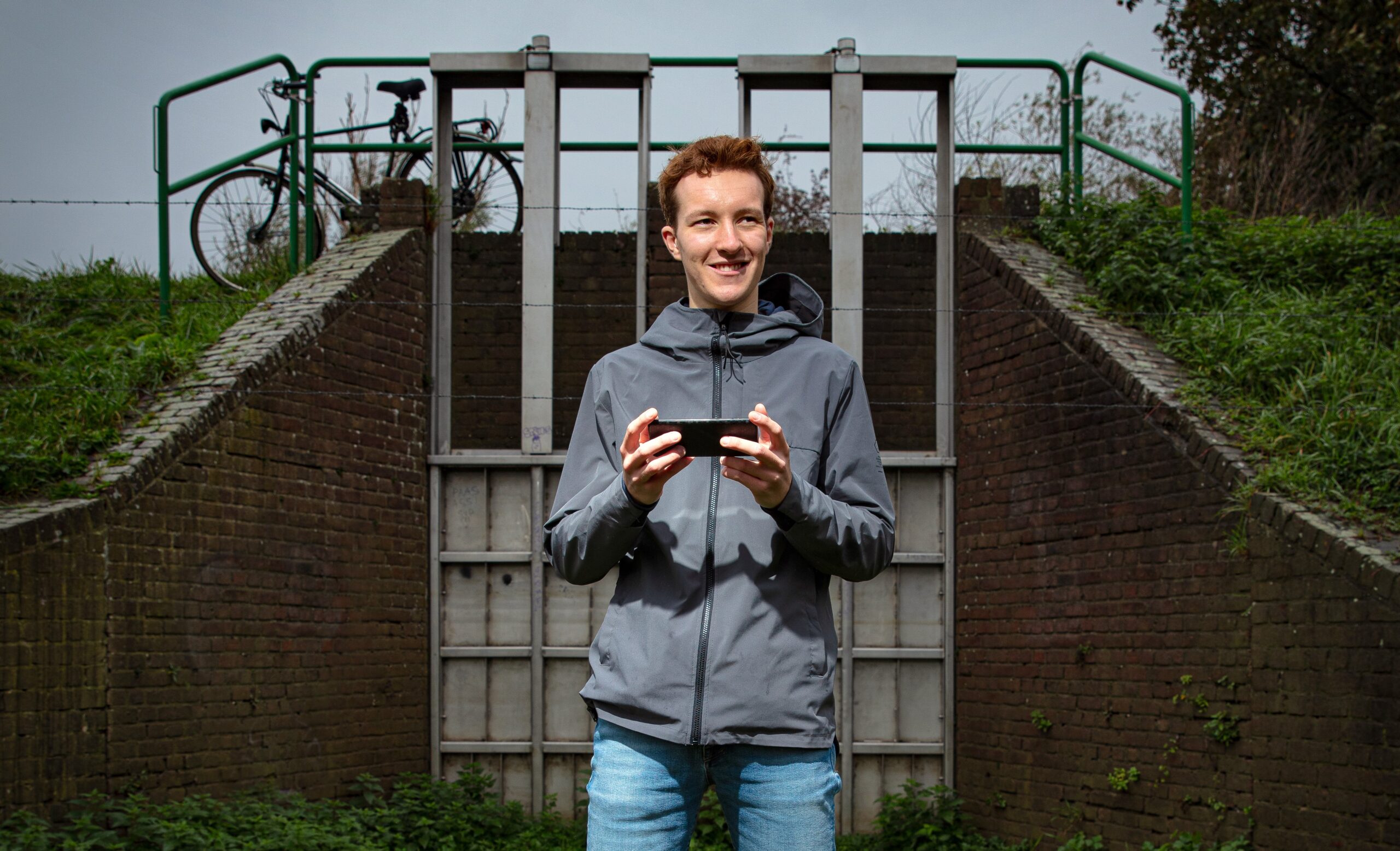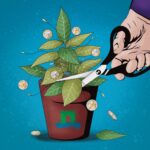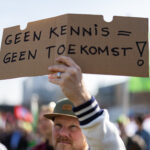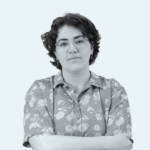Peek – a Wageningen education app developed to make fieldwork more enjoyable and informative – is getting quite a boost from the coronavirus situation. ‘The possibilities are endless.’
Teun Vogel teaches Soil Physics and Land Management. In 2019, he and his then colleague Jerry Maroulis thought up the app. ‘The idea was to create a fun and interactive way of sending students into the field,’ says Vogel. ‘You can plan a route with Google Maps and GPS and add precise locations where students have to be to answer questions. You can only answer the questions when you are actually there. Then teachers can download the answers, come back to particular questions, and give feedback.’
The two teachers were given an educational innovation grant to develop the app. Vogel: ‘We had a look at what other subjects this app could be used for. And then came the coronavirus and online education, and everything went into overdrive. Other teachers have set out Peek field trips that students could do in their own time. Teachers of Restoration Ecology even went and stood along the route. When the students came by, the teachers could do what they are good at: teaching. In Marine Systems, there was a field trip for which stakeholders recorded short podcasts. When a student arrives at a location, they listen to what a stakeholder has to say about it.’
Philips dam, Schammer and Bovenpolder
During the Design in Land and Water Management course, a group of students normally go on a two-week excursion to Limburg, but that was cancelled due to the coronavirus. Vogel: ‘In that course, students studied a case, which was usually in Limburg. As an alternative, we asked them to study a case in their own area.’ And that was where Peek came in again. ‘We thought: what if we got students to plan their own field trips about their case studies?’ No sooner said than done; students were given the login details for the app, and a couple of assignments. ‘Each field trip had to include a vlog or a podcast, for example,’ says Vogel. ‘Normally speaking, teachers plan field trips and think through what the best way to explain things is. By doing that work themselves, students do more interpreting of data, and they learn how to communicate clearly about their research.’
We want to roll out this app on a larger scale
Student Carlo van Oijen (19) planned a field trip in the Bergen op Zoom area, where his parents live. ‘We were divided into small groups. My group looked at the impact of water engineering works on agriculture and on nature areas. I did research on the Philips dam, in which fresh water and salt water are separated. My field trip goes through agricultural areas that are affected by that dam, and nature areas that used to be unique for their brackish environment, but where the water is gradually becoming less salty. The disappearance of salt water can have a big impact on the plant diversity there.’
Freedom
Van Oijen thought it was a pity that such courses had to go online. ‘During that field trip in Limburg you really form a bond with your fellow students. On the other hand, this alternative gave us all the freedom to ask ourselves “What do I want to study, what interests me?” Normally you visit farmers who get regular visits from people on field trips. Now I just looked up stakeholders myself: farmers, a nature conservation organization, etcetera, and integrated that into my field trip.’
Camu Prins (19) planned a field trip in De Schammer nature reserve, which lies between the towns of Amersfoort, Leusden and Hoevelaken. ‘About 10 years ago, that was farmland; now it’s a nature reserve and a place where water can be stored. When planning a field trip you ponder questions like: “What have I researched? What do I want to say? And where’s the best place to do that?” Because it was close to home, my parents could do the field trip too. If we’d gone to Limburg, that wouldn’t have been possible.’
Marnix Van den Maegdenbergh (19) planned a field trip by bike in the Wageningse Bovenpolder. ‘I researched how flooding and high water in the Rhine is regulated by all the stakeholders: the municipality, the nature management organization Staatsbosbeheer, and the water board. Who is responsible? What kinds of measures for managing high water in the river are visible in the landscape?’
This gives students the freedom to decide what they want to research
Van den Maegdenbergh had just moved into student accommodation when the coronavirus pandemic broke out. ‘I live near the water meadows. That was a good opportunity to get to know the area better. At first you read the landscape very critically – what am I seeing now, actually? And then you take an extra step: what do I want to tell people about, and where can they see it reflected in the landscape? Planning a field trip yourself is a very nice addition to the course.’
Startup
A successful experiment? Vogel: ‘We have invested a lot of energy in the Peek app. It is working very well and the possibilities are endless. Now we want to roll out the app on a larger scale, so that other departments and universities can more easily start using Peek.’ With a view to achieving that, the app now no longer belongs to the department; a startup has been created for it. Vogel is still involved: he teaches two days a week at WUR and works on Peek alongside that.
You can find more information about Peek on www.peek-app.nl.

 Photo: Eric Scholten
Photo: Eric Scholten 

